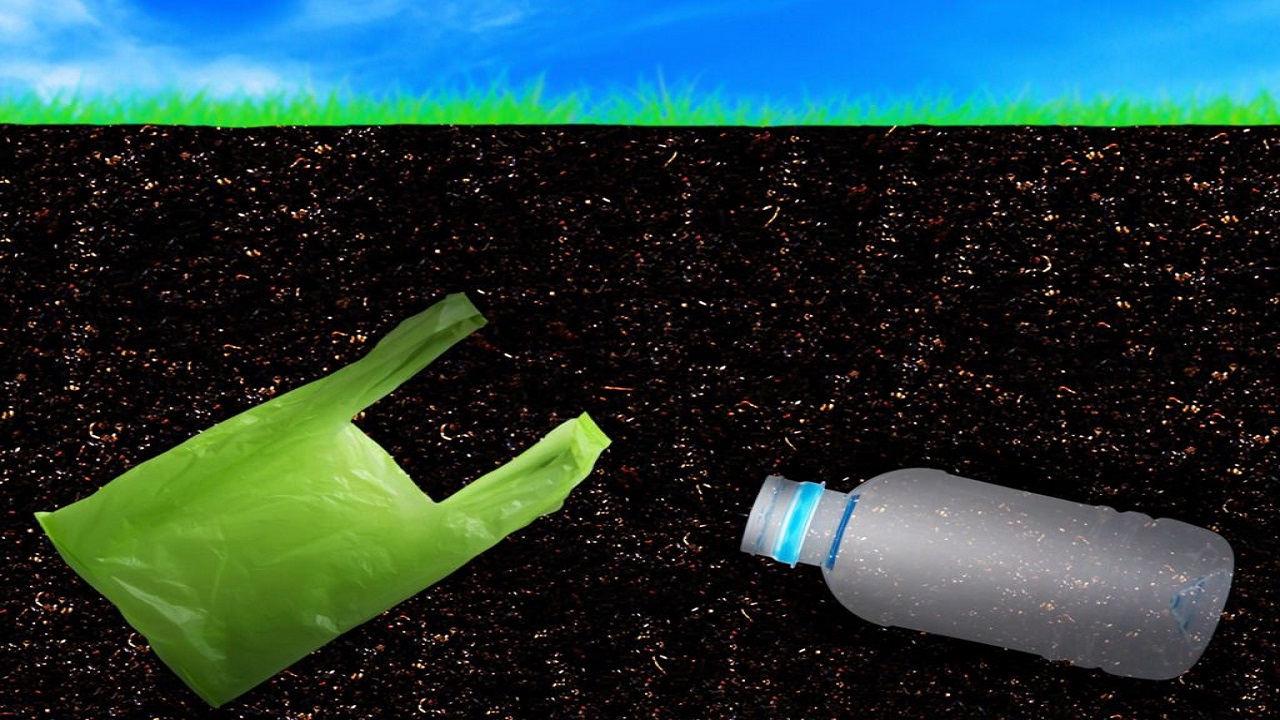Agricultural Plastic Pollution : A Silent Crisis in Farming
Context
There has been a significant rise in plastic sediments in agricultural soil across Asia in recent years. This has raised concerns over soil health, crop productivity, food safety, and long-term sustainability of agriculture.
Introduction
Agricultural plastic pollution refers to the accumulation of plastic residues in farming systems due to agricultural practices. With the expansion of modern commercial farming, plastics have become central to productivity, but their mismanagement and persistence in soil have created widespread environmental challenges.
Agricultural Plastic Pollution
-
Definition – The accumulation of plastic in the environment due to farming practices.
-
Sources – Mulch films, irrigation pipes, pond liners, seedling trays, packaging, and storage.
-
Asia – According to FAO, Asia accounts for nearly half of global agricultural plastic usage, making it the largest consumer.
Use of Plastics in Agriculture
-
Modern applications – Plastics are used in mulching, polyhouses, micro-irrigation, and food storage.
-
Benefits – Polyethylene film moderates soil temperature, prevents moisture loss, and suppresses weeds.
-
Yield improvement – Crops like cotton, maize, and wheat have shown a 30% yield increase with mulching at a low cost.
-
Negative impact – Residues of up to 300 kg per hectare found in soils. Just 1 kg of thin mulching sheets can contaminate 700 sq. ft. of farmland.
-
FAO report 2021 – Agriculture used 12 MT of plastic products in production and 37.3 MT in food packaging in 2019.
Impacts of Agricultural Plastic Pollution
-
Soil health – Reduced fertility due to accumulation of residues.
-
Disrupted ecosystems – Hampers sustainable farming practices.
-
Microplastic contamination – Study in Maharashtra recorded 87.57 pieces per kg of soil at a dumpsite.
-
Plant growth – Adverse effects on root biomass and soil organisms like earthworms.
-
Food chain risk – Microplastics absorbed by plants enter human and animal bodies.
Challenges in Addressing the Issue
-
Lack of policy focus – Agri-plastics receive less attention compared to urban waste and water pollution.
-
Short-term priorities – Farming decisions focus on seasonal yield, ignoring long-term impacts.
-
Farmer unawareness – Communities remain uninformed about environmental damage.
-
Weak waste management – 90% of Indian villages lack systems; 67% of households burn plastics.
-
Recycling crisis – Only 9% of plastics produced worldwide are recycled.
-
Insufficient inclusion – Initiatives like Maharashtra Plastic Action Roadmap overlook agricultural plastics.
Measures to Tackle Agricultural Plastic Pollution
-
Awareness – Educating farmers about long-term risks.
-
Research – Development of bio-plastics and eco-friendly alternatives by ICAR and research bodies.
-
Ban on single-use plastics – Strict enforcement at the farm level.
-
Circular approach – Emphasis on reduce, reuse, recycle.
-
Policy framework – Legally binding strategies with accountability for producers.
-
Village action plans – Integration of agri-plastic management with climate action strategies.
-
Monitoring – Penalties for burning, burying, and open dumping of plastics.
-
Sustainable farming – Promotion of vermicomposting, bio-mulching, bio-fertilisers, cover cropping, and conservation agriculture.
-
FAO guidelines – Voluntary Code of Conduct (2024) for sustainable use of plastics in agriculture.
Quick Facts
-
First synthetic plastic – Produced in 1907.
-
Global production – From 2 MT in 1950 to 450 MT annually today.
-
Environmental leakage – 19–23 MT enter aquatic systems yearly; 13 MT accumulate in soil.
-
Human exposure – Microplastics found in food, water, and even human bodies. A litre of bottled water may contain 240,000 particles.
Conclusion
Agricultural plastic pollution is a silent but growing environmental challenge. It threatens soil fertility, biodiversity, food security, and human health. Addressing it requires a multi-pronged strategy of awareness, innovation, regulation, and sustainable farming practices. Urgent steps to reduce dependence on plastics and promote eco-friendly alternatives are essential to secure the future of agriculture and the environment.




Comments (0)